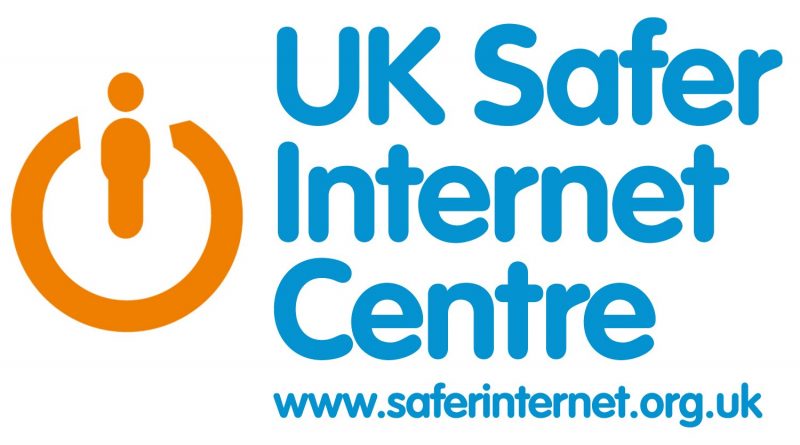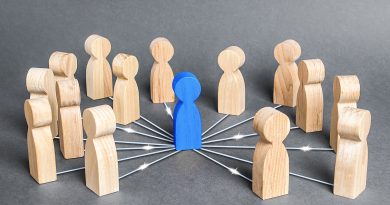UK Safer Internet Centre on Keeping Kids Safe Online, Mental Health and Digital Literacy
Keeping safe online in the age of sharing every detail, from your dinner to your latest haircut, can seem like an impossible task.
While privacy has made the news recently primarily in terms of data, there are other ways that you could be compromising your safety when using the internet, whether it’s through over-sharing or not managing your settings efficiently.
The continuous changes made to technology mean it’s only becoming more integrated into our everyday lives, with virtual assistants being the latest piece of kit we welcome into our homes.
While these new accessories are all the rage, they’re also something that need to be managed effectively in order to ensure both yours and your children’s safety.
UK Safer Internet Centre is an online base for those looking to either be safe on the internet themselves or help children learn to enjoy the internet safely. The organisation was founded as the result of a partnership between Childnet International, Internet Watch Foundation and SWGfL.
Appointed by the European Commission, the partnership works to provide support to those who need it in a variety of forms, whether that’s through their helpline, online guides or by raising awareness on UK Safer Internet Day.
In order to find out a bit more about the work UK Safer Internet Centre do, Phil from My Digital Wirral sat down with Kat Tremlett for an in depth discussion about what the centre does, Safer Internet Day and how technology is changing the way kids need to be kept safe online.
Phil: Thanks for having a chat with us, so firstly can you explain what your role in the campaign is?
Kat: The centre itself has three strands; one strand is raising awareness and help professionals teaching young people, to help parents with young people in their lives and to help the young people themselves around online safety. This includes creating resources and delivering online safety training sessions.
Another part of the centre is the Internet Watch Foundation. They are for the reporting of child abuse material online, so that could be any incident imagery of children under the age of 18. They’re also responsible in the UK for removing it.
Only 76% of 18-24 yr old men would report an indecent image of a child online.
Doing so can help victims of child sexual abuse. If you see any suspicious content online confidentially to the Internet Watch Foundation: https://t.co/lMpWk6r8ye pic.twitter.com/B5JruHJnRt
— YMCA Trinity Group (@YMCATrinity) June 8, 2018
Then the third strand is me, which is the helpline, and the helpline is aimed at children’s workforce members (teachers, guardians etc.). In the UK we already have the likes of NSPCC and ChildLine, who are obviously massive, well-established charities. Therefore, we decided to take the angle of supporting a slightly different group, with a slightly different problem. We support members of the children’s workforce with online safety issues they face themselves, and the issues children might face too.
Phil: Are there any new areas the UK Safer Internet Centre have just started getting involved in?
Kat: Most recently we’ve been working on collaborative projects around mental health and wellbeing in particular. We’ve partnered with Head Start in Cornwall who is doing research around children and young people’s feelings online and make it easier for safe guarding professionals to look for key identifiers of risk-taking behaviour and what that might look like online.
We’ve also worked on a couple of other projects. The Daphne funding from the EU for example, some of that got allocated to a project called Enable, which is essentially a European initiative to eliminate bullying across the five countries that collaborated on that. The project took a step back and looked at bullying from a pedagogical angle, from the perspective of every role so it wasn’t just the victim. We’re looking at the bystander, the bully themselves, the people who are outside of that circle of friends and how everyone can have an active role in trying to eliminate bullying within schools.
Phil: It sounds like it’s expanding quite quickly then.
Kat: Yes, we’ve always tried to make sure we’re involved in what we feel to be the most current and most important issues at hand, and right now mental health is such a big driver.
Clearly, we have some key differences in our culture compared to other cultures, especially in terms of the way young people and adults think it’s OK to engage online. And I think anything we can do to address that and try to make a more positive contribution to what happens online then that can only be a good thing.
Phil: What would you say are the major issues facing internet safety at the moment?
Kat: That’s a big question. My personal opinion on this is our general stance on what is acceptable and appropriate behaviour online. It seems that we as a western culture are more likely to use tools in a negative manner than other cultures. That’s been seen on the likes of anonymous apps like Ask.FM and more recently we’ve had another anonymous app pop up called Sayat.me, which actually closed after the suicide of a teenage boy in Northern Ireland.
It’s really interesting to see how we as a society use these tools and I think there’s a lot more research that needs to be done to understand that behaviour.
For me it’s more worrying we think it’s OK to act like that even as a teenager or an adult, and who is role modelling that behaviour? Where is that coming from and what are the things we can do to try and target that?
Phil: Why is it important for people to be safe while using the internet?
Kat: I think it comes down to if you want to be treated in a decent way; you have to treat others with respect online too, and part of that process is being safe to a certain extent. If you’ve got an open [social media] profile for instance or sharing a lot of information with other people, you’re making yourself more vulnerable to others finding out information about you, and that can actually lead to identification fraud or extortion and things like that.
[With online services] some people think it’s just a craze and it’ll die down, but it’s not going to do that. There’s only going to be more technology and more ways to access things, for example we’re one-step away from having more wearable kit.
It’s here to stay, it’s engrained in our culture and we owe it to ourselves to make sure we treat it with respect but also that we’re safe on it, because you’re not only putting yourself at risk but also you’re putting future generations at risk too.
Phil: What tips would you give to people looking to be safer on the internet?
Kat: Think about who you want to engage with. It sounds a bit like a marketing strategy but if I was looking to make up a new profile on Facebook for instance, then I might think about who are the people who are going to be my friends. If, for instance, my parents and grandparents are my friends and some of my teachers are my friends that automatically makes me think, well what I write then has to have a certain air of decency about it.
It’s thinking about who you’re engaging with, and maybe you have different platforms for different types of groups of friends. Thinking about who you’re talking to helps you decide which service is the best one to choose and when you’ve chosen, make sure your privacy settings are set how you want them.
Obviously, if you’re a national celebrity and want to share everything with the world then it’s not going to be very helpful if everything is closed down and only one person can see. At the same time if you’re a mum who’s got a three year old child and is taking a picture of them every day and putting it on your public Facebook profile and you’re Facebook friends with thousands friends who get to see it (and interact with it) then there might be a potential danger there of where that photo goes.
I think the reality of it is we do share things publicly, whether it’s for the gratification of a ‘like’ on Instagram or whatever, these sorts of things appeal to the younger generation. What we need to do is make sure they have the resilience to cope with negative feedback when it comes or a negative experience.
One thing we quite often talk about is online dating. Obviously, the stranger danger message is still very prevalent and it’s a very important message. But when we see the message ‘don’t speak to people you don’t know online’, if I told you that from the national online dating survey around 25% of all relationships in the last year were formed online, it kind of puts that message into perspective a little bit doesn’t it.
That’s why we talk about digital literacy and resilience and why it’s a really important thing for young people to learn just so they’ve got some strategies to deal with these situations when they arise. Because they will arise, it’s not a case of getting through life without anyone approaching you in a horrible manner. Even before the internet, this was happening on the streets so I think all of this talk of “well if you do this then it won’t happen to you” is falsifying the actual truth.
Phil: What tips would you give to parents who want their children to be safe on the internet?
Kat: There are a few things, the first one: Just get online. One of the biggest excuses we hear about not being able to help is “I don’t know anything about it, they know much more about it than me” but there are so many places you can go to find out more information. Internet Matters is a brilliant site, which is specifically designed for parents. It gives information on how to set up parental controls on various different services and the like but there’s also blogs and advice pieces about some of the current issues.
It is really important to chat with your children on an ongoing basis about staying safe online. Not sure where to begin? These conversation starter suggestions can help. https://t.co/Jpzv9Gtfh5
— UK Safer Internet (@UK_SIC) June 12, 2018
Of course there’s also the UK Safer Internet Centre website, which has an advice section for parents too, including loads of guides, one being the “parents’ guide to technology” which is particularly useful as it has specific guides for each of the gaming devices, which seems to be quite a big topic that comes up on the helpline.
If you hear your son or daughter is playing Minecraft, then go and play Minecraft and see what it is. The more you are immersed into their world, the more you’ll understand about it.
It is really important not to be fearful of the technology, because by setting up that barrier you’re almost making it taboo, so embrace it. If you make it part of everyday conversation then when something happens where they need a bit of support then they’re more likely to turn to you for advice.
What we need to remember as parents is maybe we’re not the experts in the technology our kids are using but we are the experts in life experience, we’ve been through a lot, and what we can show them is using our experience to help shape theirs. We’re not always going to have the right answers as parents but it’s about being there when something goes wrong.
Phil: My son is only a couple of months old and I dread to think what technology he’ll be on when he’s older.
Kat: A lot of research that’s done normally focuses on the negatives but there is a hell of a lot of positive benefits as well, especially with young users when you’ve got that instant gratification of swiping left or swiping right, that’s really exciting. For example, using that sort of thing for potty training or rewards charts, that’s an easy win for everyone.
When I was a kid, I was told if you watch too much TV, I‘d get square eyes. I think we do that with children and screen time, and I think this comes in line with gaming.
There are so many games out there that have quite graphic or extreme content. And as kids are likely to act out their favourite TV programs, they’re quite likely to act out some of the stuff they play in a game. But there’s this uproar about it as if it’s the worst thing ever and we’re training them to be mass murderers or whatever.
But I think the point is kids are always going to roleplay and of course they’re going to play out the things that happen in those sorts of environments because it has a massive impact on their life at that time. This doesn’t mean when they’re an adult Paw Patrol, for example, is going to define their life.
There’s so much good to come out of [gaming] and I’m thinking especially of those children who have a special educational need or an additional need of some kind. It might be an arena where they can communicate more freely, it might be somewhere where they don’t need to be as aware of their social cues as they have to be in the offline world to the point where it detracts from them socialising. So there are positives, it’s just about embracing them and making sure, especially with the youngest of children, that the supervision is there too.
Phil: We’ve already had Safer Internet Day this year (6th February). What sort of activities did the UK Safer Internet Centre do for Safer Internet Day and what’s planned for next year?
Kat: Every year Safer Internet Day is co-ordinated every year in Europe by Insafe. Essentially, we have a network of centres that do the same sort of work as us but in different countries, I think there are 32 of us across the EU at the moment. This year we focused on mental health and wellbeing.
At SID [Safer Internet Day] every year, we have a few things that always happen. We have education packs we release that have resources targeted at specific age groups so we’ll always have key stage 1, an early years one, key stage 2, 3 and 4. This year for the first time we had an educator’s pack and a parent’s pack so parents could download and get involved at home with their kids too.
As well as that, we also have Safer Internet Day TV that’s co-ordinated where I’m based. It complements the education packs but essentially it’s a series of films targeted at each age group as well as one for parents as well.
Safer Internet Day 2018 reaches 45% of young people in the UK – The Safer Internet Day Impact report was published today https://t.co/nanSaIiBm2 pic.twitter.com/hD0B1h82YF
— UK Safer Internet (@UK_SIC) April 10, 2018
The packs are full of activities that kids and the educators themselves can engage with either just on the day or as a whole scheme of work in the lead up to it or afterwards. The packs equip people with the ability to run their own training sessions for parents in their area perhaps or it might be an assembly in school for instance.
On the day itself we always have an event in London and key stakeholders such as government ministers, internet providers or phone providers will come along as well. Essentially, it’s always a youth focused event so there’ll be a group of young people who will talk about something they’ve done to help keep safer online. The event is usually hosted at the BT centre.
This year for the first time we went up to Liverpool FC, which was quite exciting, and we were involved in a massive event organised by the football club who had invited over 800 pupils from the area to come and have workshops on online safety. So me and my colleagues got to deliver to the pupils which was brilliant.
Our workshops got them to think about a message they wanted to deliver to the make the internet better, got them to record it to camera and see themselves on TV with a green screen. We also had a moral compass activity as well, basically giving them scenarios that could happen on the internet.
Alongside that one of our consultants was also running pupil-lead online safety sessions with videos and inter-activity with large groups of pupils.
We’ll definitely be coming back again next year. It’s actually been running for about three years, it was just the first year that the whole [UK Safer Internet Centre] team has been involved. Usually just one of our consultants goes up and delivers but this year they ran a conference-style workshop event with 400 kids in the morning and 400 kids in the afternoon so it was very intense day.
What’s brilliant for us is the football club put this on so it’s not something we have to co-ordinate. We’re just an element of a bigger day. But that’s what Safer Internet Day is all about, it’s about the young people themselves, so anything we can do to support that of course we will.
You can find more information about UK Safer Internet Centre and the projects they’re involved in on their website. What are your thoughts on internet safety? Do you worry about what your children are exposed to online? Share your thoughts in the comment section below or join our online community over on Twitter.




